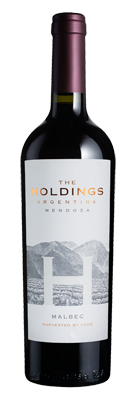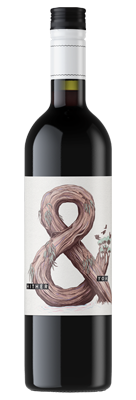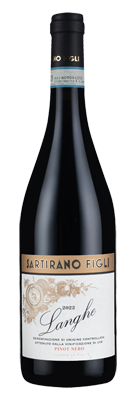Filter by
- 94pt Great Value WA Shiraz a “lovely red … wonderfully drinkable. Utter charm” (Halliday).$32.00 RRPfrom $24.99 when you mix 12+
- Trophy and Top Gold-winning, vibrant and elegant blend from cool climate vineyards.$45.00 RRPfrom $38.99 when you mix 12+
- Gloriously silky, elegant flagship red from a small family estate.$57.00 RRPfrom $49.99 when you mix 12+
- New vintage of the flagship, barrel-aged Shiraz from the pioneering RedHeads in the Barossa Valley.$50.00 RRPfrom $50.00 when you mix 12+
- A "lovely contemporary Barossa Reserve Shiraz" (Halliday) with three Golds and 2 x 95pt scores.$50.00 RRPfrom $45.99 when you mix 12+
- "Outstanding vlaue" Cabernet with scores of 92 and 95pts.$22.00 RRPfrom $19.99 when you mix 12+
- Bright, fruit-forward, Gold-winning Marlborough Pinot Noir from one of the region’s finest estates.$35.00 RRPfrom $35.00 when you mix 12+
- Silky fruit-filled Malbec from Familia Zuccardi, one of Argentina’s finest cellars.$32.00 RRP$21.99 when you mix 12+
- Always exciting release from top Victorian Riesling producer, Delatite.$30.00 RRPfrom $25.99 when you mix 12+
- Gold-medal, 90pt Langhorne Creek Cab from cricket legend Ricky Ponting & award-winning Ben Riggs.$25.00 RRPfrom $23.99 when you mix 12+
- Pure, silky Malbec red – Argentina's great hero grape – from the highly awarded Bodegas Antigal.$28.00 RRPfrom $19.99 when you mix 12+
- "A lovely ripe style of Pinot..." (Wine Pilot), with Gold and scores of 94 & 95pts.$40.00 RRPfrom $35.99 when you mix 12+
- Textured and silky Pinot Noir with savoury notes and spice from cool climate Tumbarumba.$80.00 RRPfrom $55.99 when you mix 12+
- "Captivating" 93pt Tempranillo from cool-climate vineyards and the excellent Bryan Currie.$45.00 RRPfrom $39.99 when you mix 12+
- 94pt Shiraz Shiraz Shiraz – from three distinct Marananga (Barossa) vineyards.$25.00 RRPfrom $21.99 when you mix 12+
- Two Golds, 95pts and 'Best in Varietals' title for this vibrant RedHeads blend.$24.00 RRPfrom $18.99 when you mix 12+
- $25.00 RRPfrom $17.99 when you mix 12+
- $30.00 RRPfrom $25.99 when you mix 12+
- Rich and fragrant Hunter Valley Shiraz from the celebrated 5-star Margan family.$27.50 RRPfrom $21.99 when you mix 12+
- This delightful 91pt SGM gets the AAA treatment – aromatic and approachable in equal measure$22.00 RRPfrom $19.99 when you mix 12+
- $25.00 RRPfrom $17.99 when you mix 12+
- 92pt Cabernet from McLaren Vale's exciting Hither & Yon.$29.00 RRPfrom $22.99 when you mix 12+
- Very classy Pinot Noir from Italy’s premium Piedmont. Fresh, elegant fruit with light spice.$40.00 RRPfrom $32.99 when you mix 12+
- An award-winning, 93pt Yarra Valley Syrah with several high scores!$35.00 RRPfrom $25.99 when you mix 12+
Wine FAQs
What is vegan wine?
As wine is made from fermented grape juice, you’d be forgiven for thinking that all wines are vegan by nature. So, are all wines vegan-friendly? Not necessarily – what makes a wine vegan is how it’s made. Some winemakers use animal-based products during the winemaking process, which means their wines may not be suitable for those following a plant-based diet.
Before wines are bottled, they undergo a process called clarification. This removes tiny, natural particles and impurities that are natural by-products of fermentation, which can give wine an unappealing, cloudy appearance. Most winemakers use fining agents, which bind with the particles, forming larger clumps that can be filtered away to leave a clear wine.
The problem lies with the fining agents – the most common of which are animal-based products such as gelatin and egg whites.
Winemakers can opt for alternative fining agents made from plant or mineral materials to do the same job. These wines can then be labelled vegan, making them a good choice for anyone wanting to avoid animal products.
Some winemakers avoid clarifying their wines or leave them to clarify naturally over time without fining agents, which makes them vegan-friendly by default.
What fining agents are used in vegan wine?
Traditional fining agents include:
- Gelatin – from the bones, skin or connective tissue of cows and pigs.
- Isinglass – the dried swim bladders of fish.
- Casein – a substance found in milk.
- Albumen – egg whites.
- Chitin – crustacean shell fibre
Although these materials are used in tiny quantities and are removed from the wine once their job is done, some trace amounts could remain in the finished wine. As they aren’t classed as additives, they aren’t required to be listed on the wine label, which could make it harder for vegans to make an informed choice.
Vegan wines are made specifically using synthetic or plant-based fining agents, or they are bottled without being clarified at all. Alternative fining agents include:
- Bentonite – an absorbent clay made from volcanic ash.
- Activated carbon –from coconut shells, bamboo or coal.
- Kaolinite – a type of clay
- PPVP (polyvinylpolypyrrolidone) – a synthetic polymer that’s made in a lab.
- Silica gel – made from silicon dioxide, found in sand and quartz.
- Plant casein – a vegan-friendly protein extracted from legumes like peas and soy.
Does vegan wine taste different?
Vegan wine tastes just like regular wine because it’s made from the same grapes and in nearly the same way. The fining agents used to clarify and stabilise the wine – whether animal-based or vegan-friendly – don’t affect its flavour, so you won’t miss out on taste by picking a vegan option.
There might be a smaller variety of wines to choose from. However, as veganism has become a more popular dietary choice, many wine brands now recognise the need to create vegan-friendly versions of their wines.
How can you tell if a wine is vegan?
In Australia, winemakers are required by law to state on their label the presence of certain allergens, including milk, egg and fish (such as isinglass). This can be helpful when trying to identify vegan wines.
However, to make it easier for vegans to shop, many wineries now clearly label their bottles as ‘vegan’ or ‘vegan-friendly’.
This section at Laithwaites is dedicated to vegan wines, so you can find all your new favourites in one place.
Are organic wines vegan?
Although the two terms might sound related, organic wines are not automatically vegan.
Organic wines are made with grapes grown without synthetic fertilisers or pesticides, but the winemaker may have used animal-based fining agents in the winemaking process.
Vegan wines could be made from grapes treated with synthetic chemicals but are not clarified and stabilised with animal-based fining agents.
Is vegan wine popular in Australia?
Yes, vegan Australian wine is becoming increasingly popular – both vegan white wine and vegan red wine.
With more people adopting vegan, vegetarian and plant-based diets for health reasons, vegan wine naturally fits into their lifestyle choices.
There is a growing awareness about the ethical implications of using animal products in food and beverage production, leading wine lovers to seek vegan alternatives. They are also motivated by environmental sustainability and choose vegan products to reduce their ecological footprint.
Australian winemakers are known worldwide for their creative and innovative approach, so it’s no surprise that alongside the international offerings, there are many excellent home-grown vegan wines available.



























